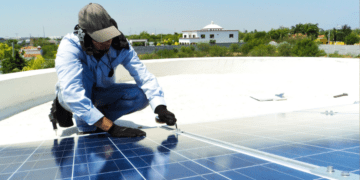When you purchase a generator, you do so seeking a reliable source of power. Whether you’re looking to power your fridge or construction site, generators can make it happen. But there are some clear warning indicators that your current generator may need to be replaced.
Stay with us to learn 7 signs you need a new generator!
1. Frequent Generator Repairs Are a Sign
Table of Contents
A broken generator is useless. And it’s also a burden on your budget.
A faulty motor or outdated mechanics can lead to increased repairs. Likewise, worn wiring or a dead battery can be a culprit. When the cost of generator repairs overshadows the cost of a new generator, it’s time to make a change.
2. Does Your Generator Start?
If you use a generator to fuel your home improvement projects, there’s nothing worse than a generator that won’t start. You might not always have an outlet nearby to charge your power tools, after all. That’s where a generator can come in handy, as long as it starts.
Your generator’s starter may be on the decline. And you may have issues starting the generator before it finally gives up.
3. Look for Poor Fuel Efficiency
Generators tend to lose fuel efficiency as they age. Worn-down belts and other mechanical parts contribute to this problem.
As your generator ages, you might want to track how often you’re adding fuel. Whether it’s propane or something else, frequent fuel-ups can translate to a lot of extra money.
4. An Old Generator Means You May Need a New Generator
How old is your generator? If you’ve been relying on it for thousands of hours over the course of a decade or more, it might be nearing its end.
Depending on the size of your generator, you could get over 10,000 hours out of it. Smaller generators, however, might top out at around 1,000 hours.
5. Your Current Generator Might Be Undersized
Not sure just how much power you need? Look into the best used generators to find a good price on a model that you think is the right size. With a used generator, you won’t have to spend as much and you can always resell it.
6. Watch for High Carbon Monoxide Output
Generators will release carbon monoxide into the air. While it’s a normal part of how they function, an old residential generator will start to release more. Because carbon monoxide can be lethal, it’s smart to measure carbon monoxide emissions to track changes.
7. Can You Rely on Your Existing Generator?
If you can’t answer this question without hesitation, it’s time for a new generator. When you head out camping, you don’t want to drive into the mountains only to be without power.
Get the Generator You Need
While it’s wise to be fiscally responsible, it’s also wise to invest in a new generator when it’s the only viable solution. Generators offer a portable power supply for road trips and a backup supply for emergencies. Watch for signs of trouble like poor efficiency or routine repairs that indicate it’s time to make a change.
Need more home improvement tips? Come back to find fresh articles!




















